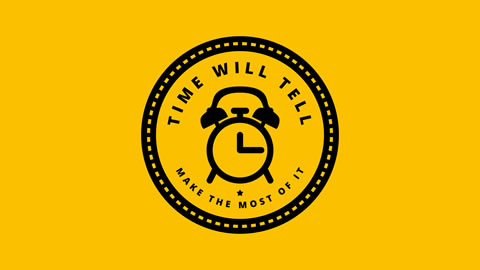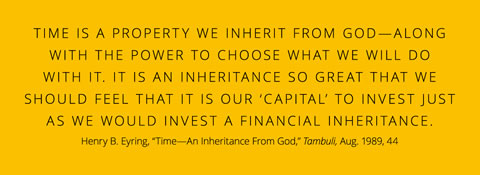
We’ve all heard that a stitch in time saves nine. And of course when we do things right the first time, we don’t have to go back to fix mistakes. But how else can we make our days more productive?
One way is to break each week down into work modules before you look at your day segments. For example, you could use Monday strictly as a task day—no meetings, no outside distractions, just hunker down and get ahead of the game for the week. Tuesdays could be for meetings only, a day for all the planning and coordination. Wednesday and Thursday could be task days. Friday morning could be used for emergency projects and weekly accountability (that way, if you are ahead of your goals, you can take Friday afternoon off).

As the proverb states, “By failing to prepare, you are preparing to fail.” Not everybody can plan each week day by day, but you can at least start by putting similar activities in weekly boxes.
Now let’s look at day segments: Where’s the best place to start? Always think of yourself first. Get up early and meditate, pray, read scriptures, and make a quick mental list of what you are grateful for. This is like preparing your mind to compete—you warm up and visualize a good day. Incorporate a little exercise every day; as you get the blood flowing, you will increase your energy.
Winston Churchill is attributed as saying, “Let our advance worrying become advance thinking and planning.” Take on the day’s most difficult tasks when you have the most energy, and finish off with the easy stuff. That way you can come home at night less stressed and feeling good about all that you accomplished. Make a daily checklist and keep it close so you can see your progress.

Take a full lunch. Yes, take time away from your desk to go for a walk, sit and read something non work-related, or even close your eyes for 10 minutes in a comfortable chair. The food gives you the energy to finish the day, while the mental break provides time to recharge.
Work time and email time—there’s no such thing as multitasking. Effective work is done best by concentrating on one thing at a time, then moving on to the next. So block out chunks of time for tasks and for responding to and sending emails. Many commuters use their time on the bus or train to do all their emails, leaving the day for real work.
Plan for the next day. It’s been said that Ernest Hemingway never closed a day with a finished sentence—he always wanted a good place to start the next day. It’s the same with planning. When we leave a list of what we have to do the next day at our workspace, not only do we have a place to start in the morning, we leave the work at work and can enjoy our time at home. And time invested at home is a wise investment indeed.

![]()
